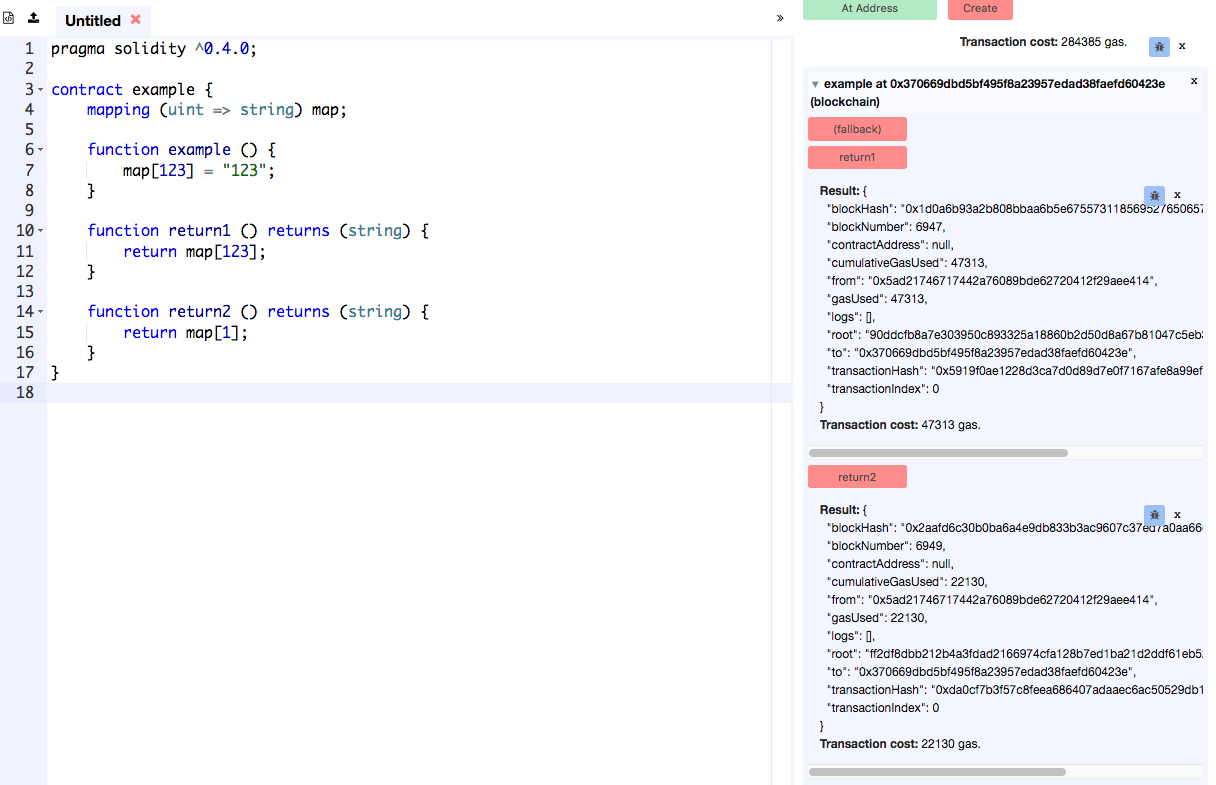For example, I have a contract like this:
contract example {
mapping (uint => string) map;
function example () {
map[123] = "123";
}
function return1 () returns (string) {
return map[123];
}
function return2 () returns (string) {
return map[1];
}
}
When I'll call return1, it obviously returns '123', but what happens on return2?


